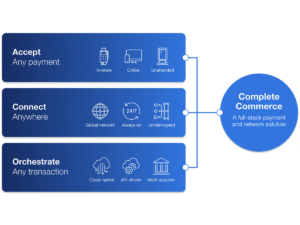We are amid the Fourth Industrial Revolution, where physical production and operations meet intelligent digital technology, machine learning, and big data to create a more holistic and better-connected manufacturing and supply chain management ecosystem. This new phase, Industry 4.0, involves interconnected, smarter, and more capable systems merging the boundaries between the physical and virtual world. Machines, or Industrial IoT (IIoT), can now communicate more intelligently with each other eliminating the physical and geographical boundaries. The issue is that current implementations must contend with slow transmission speeds and high latency that hold Industry 4.0 from its true potential.
5G can provide the high speed, low latency, and reliable connectivity needed for efficient communications between people, IoT, machinery, and facilities. Therefore, many businesses are turning to private 5G networks to ensure their operations stay connected in the new Industry 4.0 world.
Private 5G networks, which are data-isolated 5G networks with owner-controlled access, are being built by organizations, including military bases, stadiums, manufacturing facilities, and more. These networks allow for increased security and better overhead control of operations, and enterprises can use micro-networks with separated user and control planes to virtualize any network functions.
In past generations, spectrum and licenses were purely for mobile network operators. However, with 5G, governments worldwide are offering non-MNO licenses and private network licenses for private 5G. Manufacturing companies can deploy their own 5G network in partnership with operators or on their own with CBRS spectrum, a Cloud based 5G Core and RAN access from a number of providers.
Private Networks for Manufacturing
Private 5G is poised to significantly impact manufacturing and industrial IIoT. The expanded capabilities of a 5G network will empower enterprises and organizations to take on more demanding operational challenges that would have been unfeasible with a WiFi or 4G implementation. The low latency of 5G networks will enable mission-critical applications, such as remote mining, traffic control, holograms and real-time factory control.
Given the increased reliability and reach of 5G, processes that were previously difficult or dangerous to observe remotely or control will no longer require dedicated onsite teams, leading to a potential industry-wide shift in staffing and training and allowing remote collaboration at every level. Private 5G networks allow for massive device connectivity across smart meters, sensors to track logistics, and intelligent biometrics, increasing the efficiency of factories or warehouses. With richer data sourced from more devices, operators will be able to monitor productivity and employee wellness at scale.
Private 5G also offers the privacy enterprises need, as data is stored on-prem. Enterprises will no longer need to compete on a public network for resources such as coverage, spectrum and bandwidth. A private 5G network, in hand with advanced automation, can drive the industrial efficiency and productivity needed to bring Industry 4.0 to its full potential.
TNS’ 5G Innovation Lab is helping mobile network operators test out private 5G. With partners nationwide, TNS is a trusted resource for enterprises looking to implement private 5G and give their operations the reliability, security and scalability of 5G.
To learn more about TNS’ Communications Market solutions, visit: https://tnsi.com/solutions/communications
Glenn Andrews is Senior Product Manager at TNS with specific responsibility for the network services solutions within TNS’ Communications Market business.






